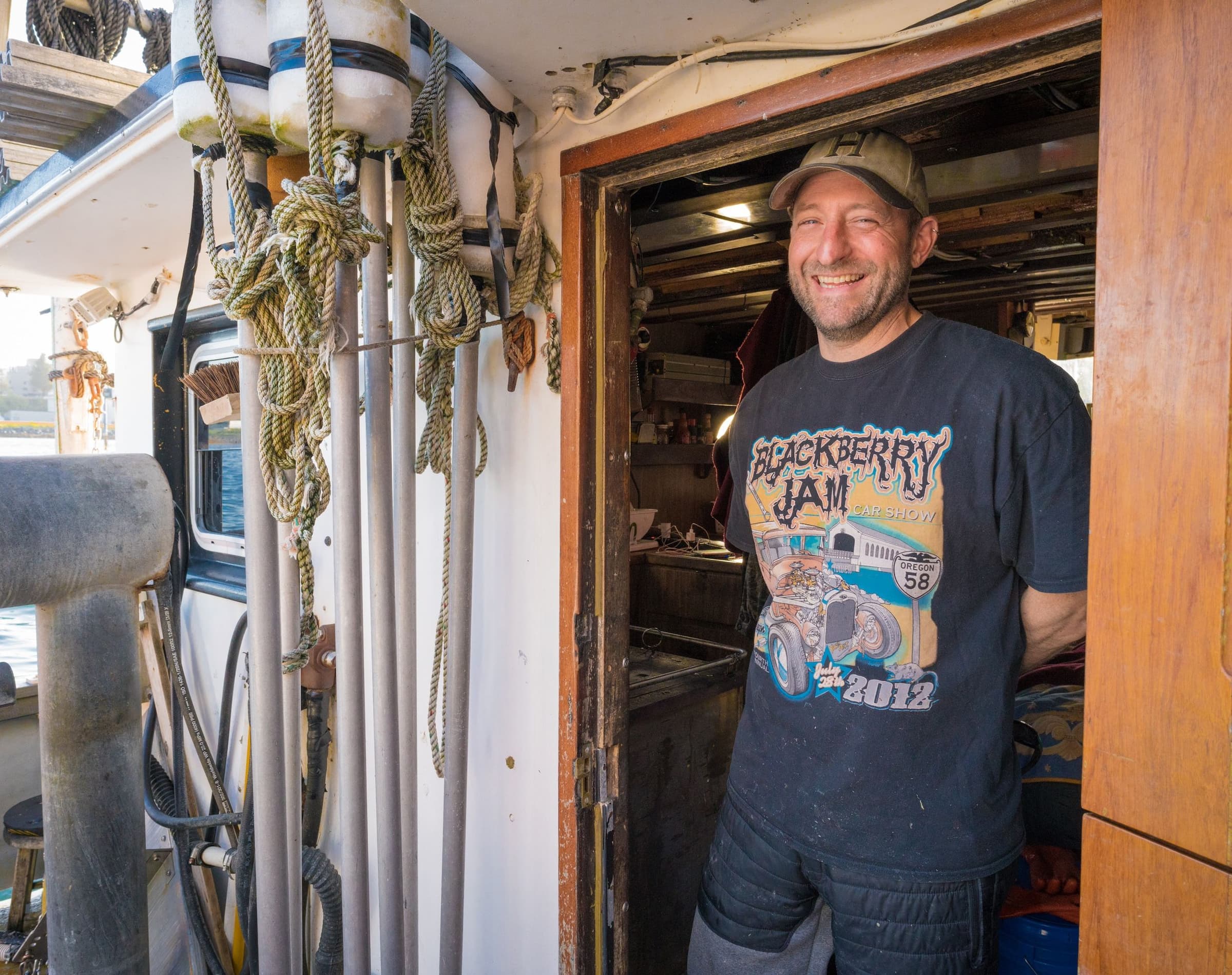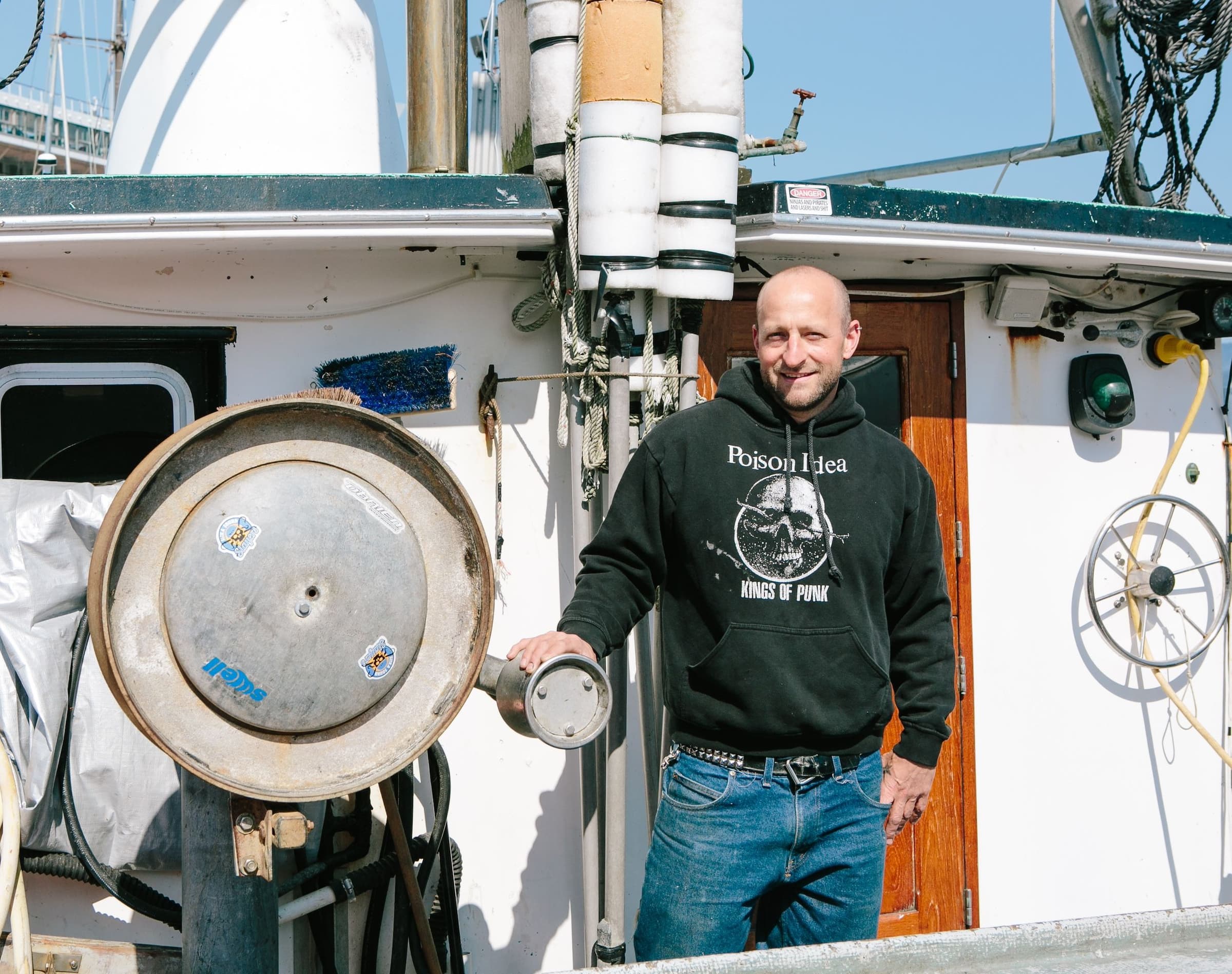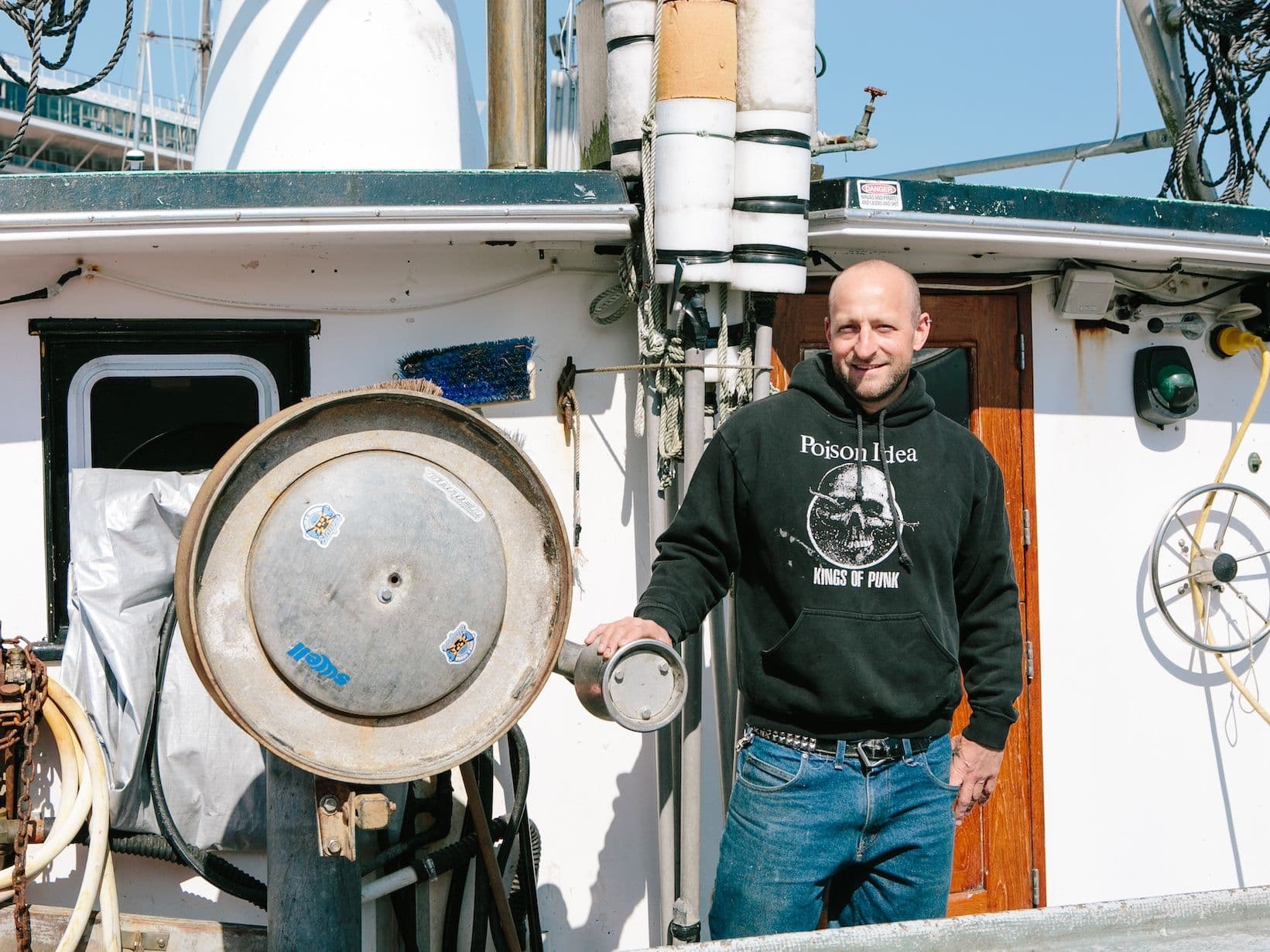Scientific Name: Hippoglossus stenolepis
Fast Facts:
- The largest of all flatfish, halibut have been recorded to weigh over 400 pounds.
- However, most of the halibut that fishermen catch for commercial sale are between 35 to 60 pounds.
- Halibut are biological anomalies that develop asymmetrical bodies with both eyes on their right side.
How Alaskan Fishermen Catch Them:
- Longline
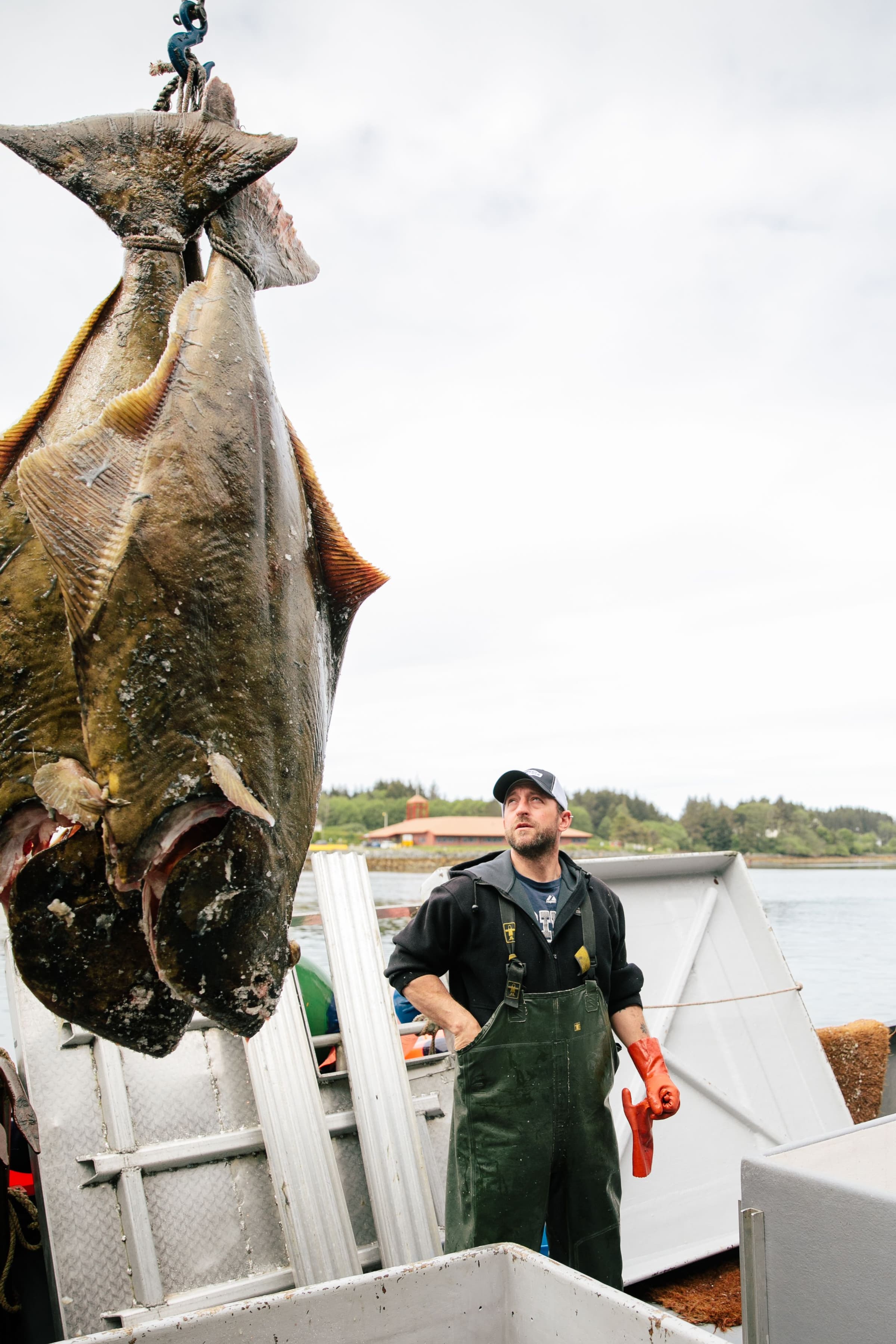
With a single giant heave, Captain Stu Weathers glides another hefty halibut onto the deck of his fishing vessel, El Tiburon, or El Tib for short. Stu, now in his fourth decade as a commercial fisherman, makes the move look effortless — as if it’s second nature. In reality, he’s hauling a giant, fiercely-fighting fish about five feet out of the water, requiring torque and immense finesse.
This particular halibut is one of several hundred that Stu lands every year — most being about half this behemoth’s size. Nevertheless, any halibut of size has a tail slap powerful enough to break a fisherman’s arm, and deserves careful attention when hauling in a longline, the gear Alaskan fishermen use to catch halibut.
“I wasn’t sure what I wanted to do when I grew up — maybe play ball — but I was certain I didn’t want to fish.”
Stu lands these prized fish during a multi-week stretch in April and May, usually once the weather is gentle enough for him to run out to one of his “halibut holes.” These fishing spots are gained through hard-earned experience and are often closely-guarded secrets within fishing families and their crew.
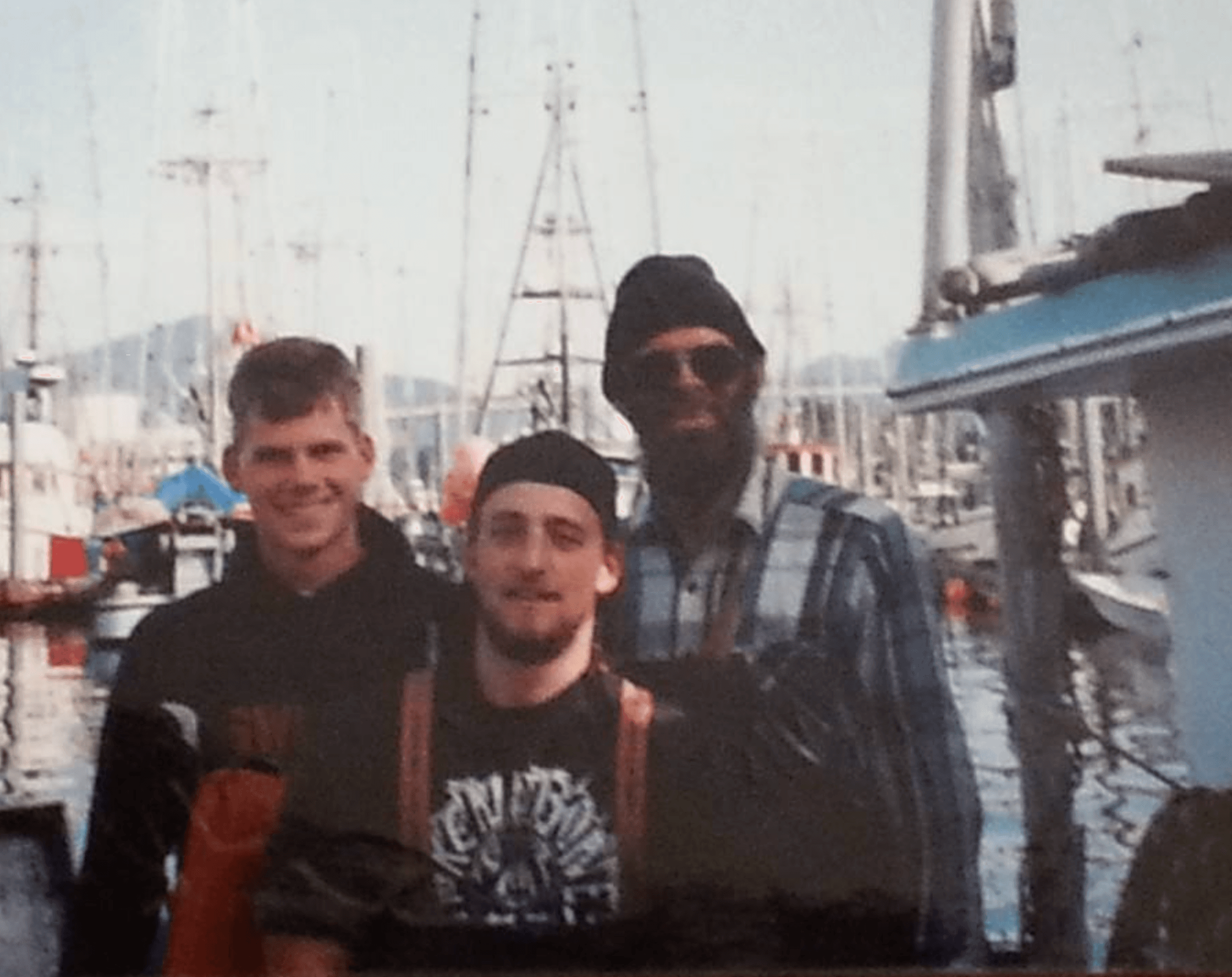
Once on the fishing grounds, Stu sets out his longline gear. Longlines are used by fishermen to catch halibut, sablefish (black cod), yelloweye, and shortspine thornyheads (more commonly referred to as “idiot fish”).
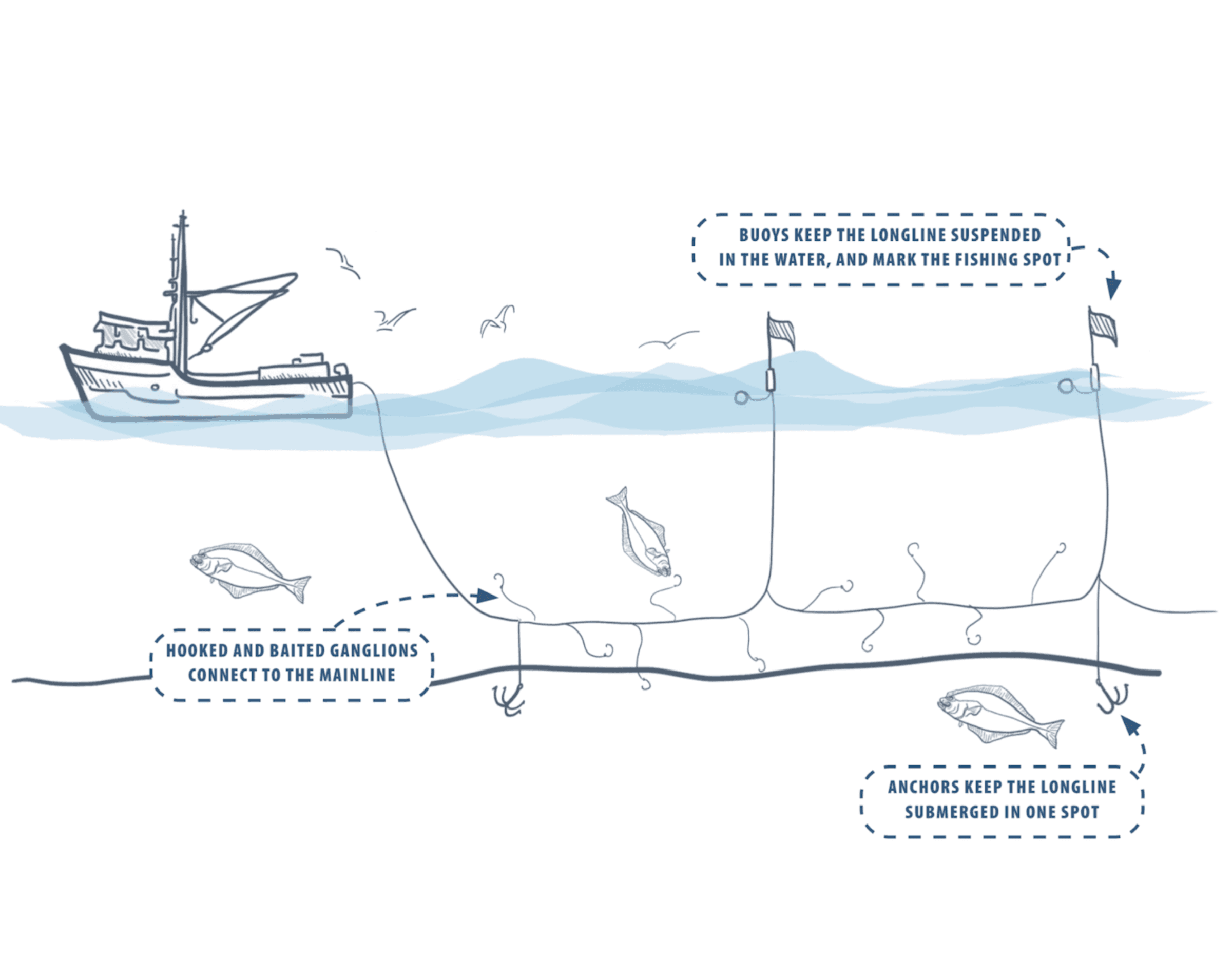
A longline is a weighted line strung with baited hooks spaced about a dozen feet apart on pieces of line called “ganglions.” These ganglions attach each hook to the main longline.
After a few hours of letting these hooks “soak” or sit on the ocean floor, Stu and his crew return to pull the line up and hopefully a few dozen halibut along with it. “If all goes well, we get ‘em in one trip,” notes Stu.
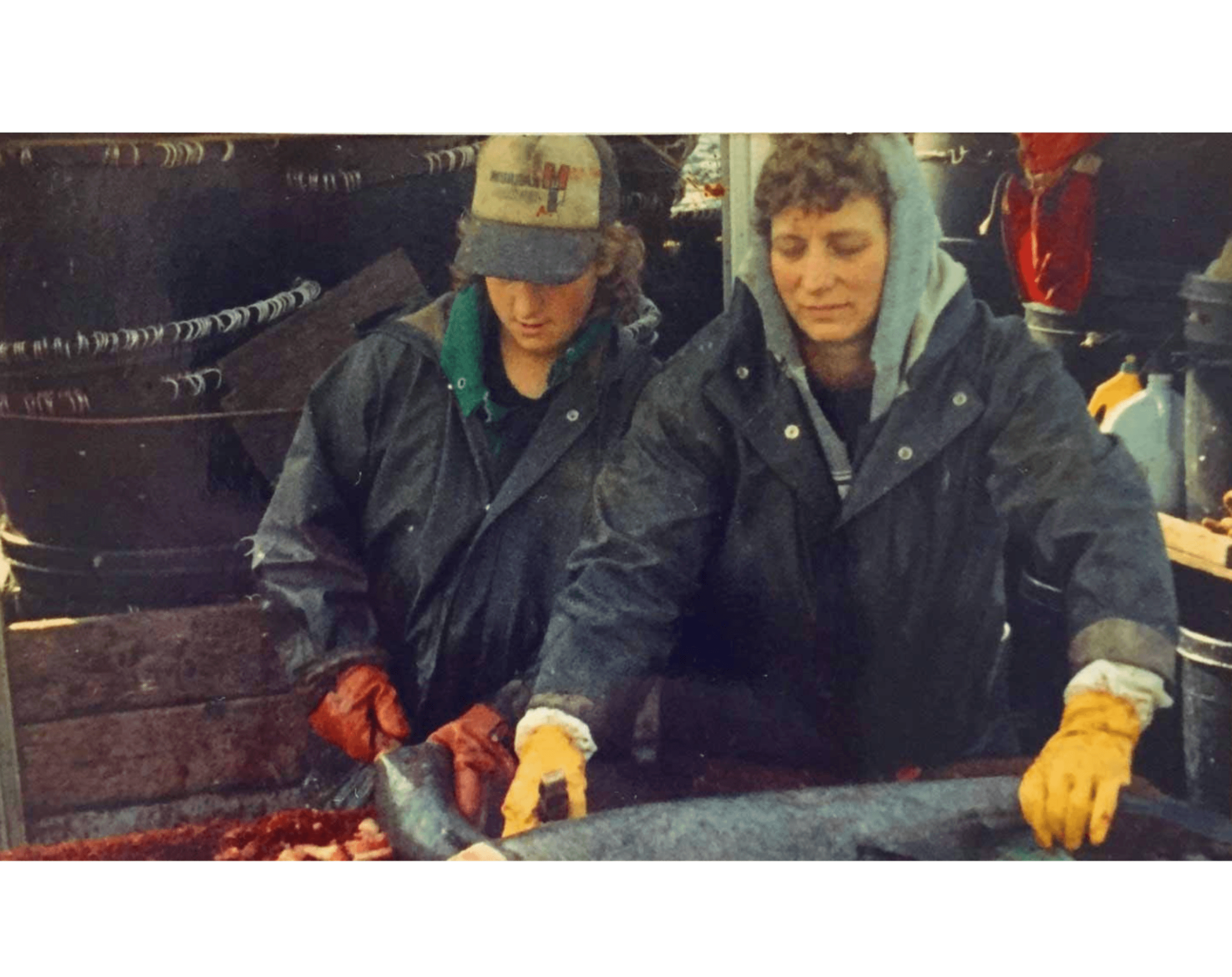
For Stu, fishing has always been a family affair. He grew up fishing with his mom and dad, Dena and Al, and his brother Nathan on the El Tiburon. “We’re a family operation through and through. I’ve been active in the operation since I was about ten,” says Stu.
Growing up, Stu never thought that he would continue fishing, let alone take over the family operation. “I wasn’t sure what I wanted to do when I grew up — maybe play ball — but I was certain I didn’t want to fish,” he chuckles.
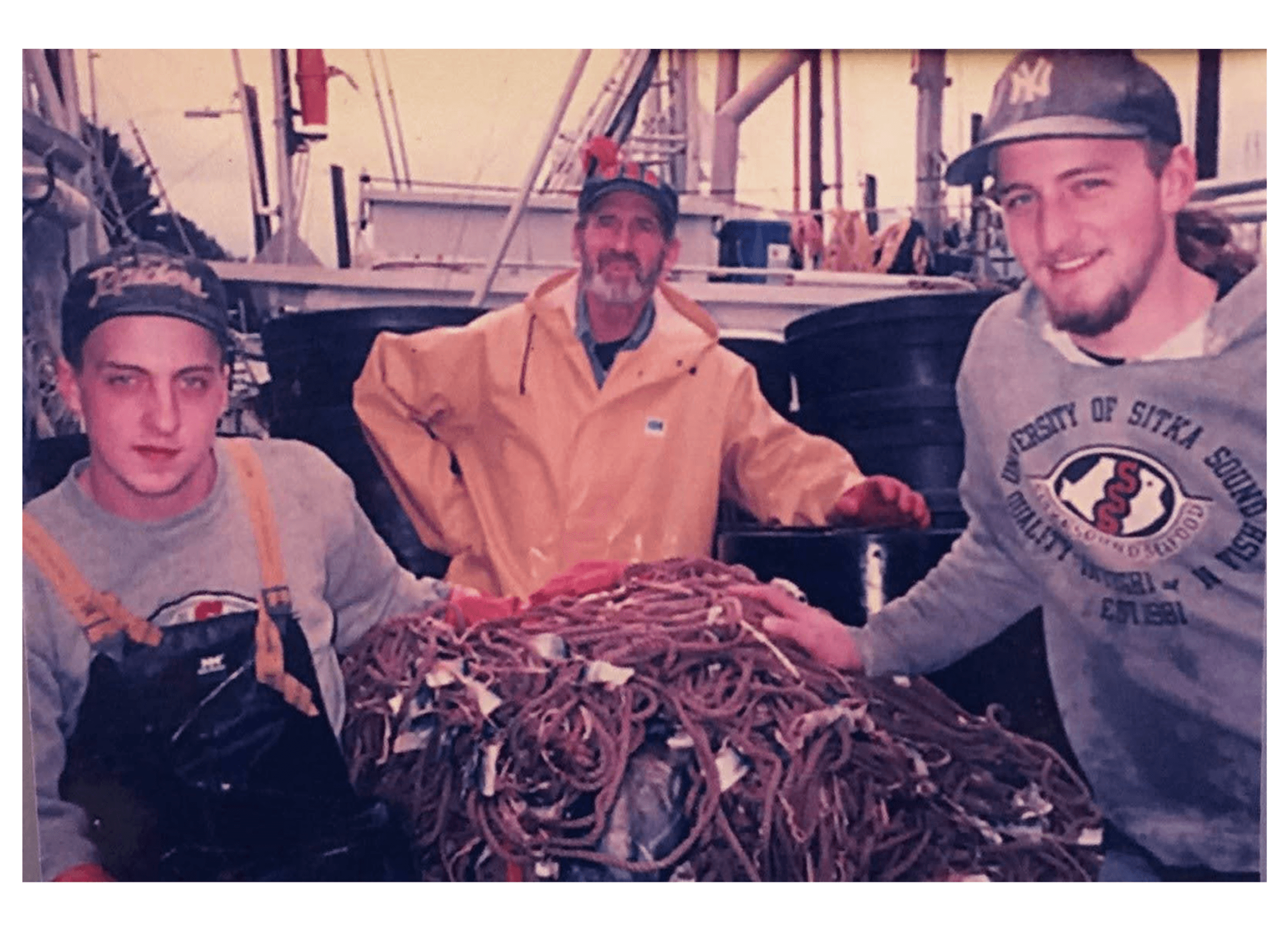
After spending over a decade amassing knowledge and experience, he realized that he enjoyed the freedom of fishing, and, despite his teenage reservations, at age 25, Stu decided to buy his family’s operation from his dad. The biggest project he’s ever undertaken was cutting the boat in half and adding another eight feet of deck space for him and his crew to work.
Like many small-boat fishermen, family support helps make his small business run. He continues to bring his cousins, occasionally his nephews, and, of course, his brother, Nathan, onboard the El Tib to deckhand. Now his kids, Kayaani, Rawl, and Olen, are becoming the third generation of fishermen in their family. “They’re loving it now, but they’ll probably try to get out of it someday like me. One of them will come back, I’m sure,” laughs Stu.
When we ask about his favorite recipe he tells us, “My family really likes the two halibut recipes from Captain John Skeele. We cook those a lot.”
You can find Stu’s favorite halibut recipes, The Skeele's Baked Halibut and John Skeele’s Fried Halibut on our website.
